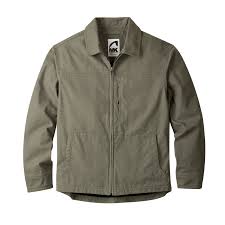jacket
英 [ˈdʒæk.ɪt]
美 [ˈdʒæk.ɪt]
- n. 短上衣,夹克;土豆皮;书籍的护封;文件套,公文夹
- vt. 给…穿夹克;给…装护套;给…包上护封;〈口〉打
使用频率:

记忆方法
1. 音译“夹克、夹克衫”。
中文词源
jacket 夹克
jack,即Jack,-et,小词后缀。即小Jack,用于指这种衣服。另一种说法是来自古法语Jacque,人名Jack的法语形式,在古法语时为农民常用名,代指法国农民,即农民伯伯的衣服。
英语词源
- jacket (n.)
- mid-15c., "short garment for men," from Middle French jaquet "short coat with sleeves," diminutive of Old French jaque, a kind of tunic, probably from Jacque, the male proper name, also the generic name of a French peasant (see jacquerie), but possibly associated with jaque (de mailles) "short, tight-fitting coat," originally "coat of mail," from Spanish jaco, from Arabic shakk "breastplate." Iakke "a short, close-fitting stuffed or quilted tunic, often serving as a defensive garment" is attested in English from late 14c., and by c. 1400 was being used for "woman's short tunic." Meaning "paper wrapper of a book" is first attested 1894.
权威例句
- 1. Will you lend me your jacket for a little while?
- 你能把上衣借给我穿一会儿吗?
- 2. He took his flashlight from his jacket pocket and switched it on.
- 他从夹克口袋里拿出手电筒,打开开关。
- 3. With her was a youngish man in a dinner jacket.
- 和她在一起的是一个略显年轻、身着无尾礼服的男人。
- 4. The middle button of his uniform jacket was strained over his belly.
- 制服上装中间的纽扣在他的肚子上绷得紧紧的。
- 5. He never washed, and always wore a filthy old jacket.
- 他总是穿着一件从来不洗的脏兮兮的旧夹克。
